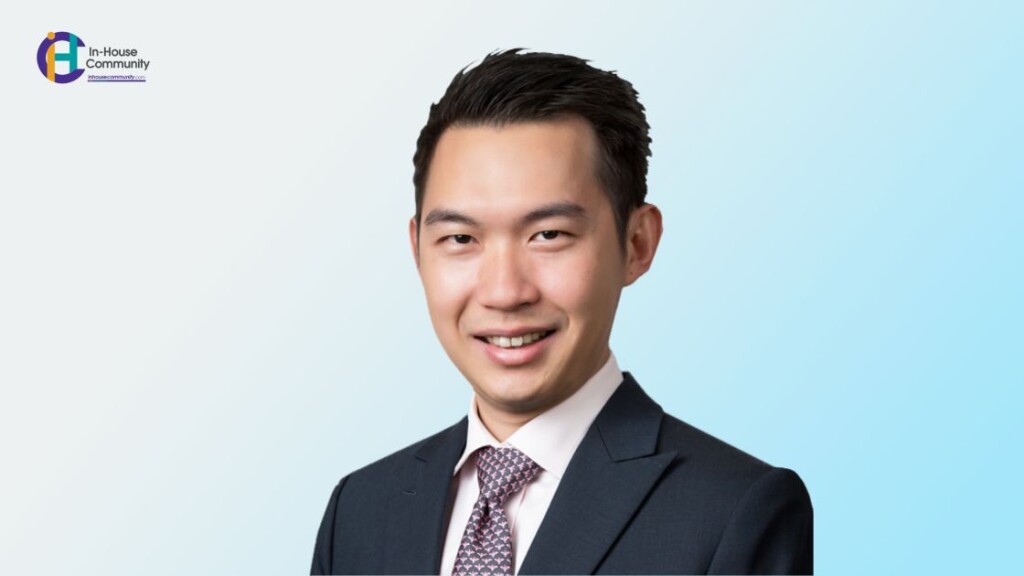
- Please give us a brief overview of your professional background.
I am the managing partner of the Singapore office of Three Crowns LLP, the world’s first global specialist arbitration firm. Apart from chairing the Board of Maxwell Chambers, I co-chair the Young Singapore International Arbitration Centre (YSIAC) committee and serve on the International Bar Association (IBA) Arb40 Steering Committee, Singapore Management University School of Law Advisory Board, and various governmental and regional arbitration committees.
- What was it that attracted you to Alternative Dispute Resolution (ADR)?
The process of working with a passionate team to solve complex problems in a cross-border context, coming to grips with the nuances and dynamics of business problems and disagreements, and formulating strategy to achieve the client’s objectives never gets old – it is intellectually challenging but very human-centered as well. The diversity of issues across different industry sectors – from nuclear power projects to complex financial instruments – and the interposition of various cultures and nationalities in cross-border disputes also means that every case is a new learning opportunity and challenge.
- It is almost one year on from your appointment as chairman of the Board of Directors of Maxwell Chambers. How would you describe your experience at the helm thus far?
It has been a privilege and fulfilling experience. I assumed the role amidst the pandemic which presented several challenges but also significant opportunities for Maxwell Chambers. Our immediate priority was to take stock of the post-pandemic landscape and be relentless in finding new ways to improve our offering and the user experience. We took the opportunity presented by the pandemic to enhance our hearing-related and other support capabilities. Our goal is to provide a “one-stop” seamless service to arbitration practitioners, distinguished by the sophistication and quality of the user experience.
Beyond our core services, I am glad to say that our work at Maxwell Chambers has focused on including a “community building” dimension: we have put together a roster of events and programmes to facilitate collaboration within the community and empower and educate ADR practitioners. We started the “Maxwell Conversations” on topical issues in the arbitration
We strive to serve ADR users “anytime, anywhere”, and not only when they are physically present in Singapore.
community, our inaugural mentorship programme that focuses on exposing younger practitioners to the intersection of arbitration and technology and a regular lecture and interview series. We engage regularly with all ADR stakeholders to understand their needs and are always open to ideas for improvement, so please do reach out if you have feedback.
- You have said that you are committed to expanding the global footprint of Maxwell Chambers. What are some key considerations for you in managing jurisdictional diversity?
We strive to serve ADR users “anytime, anywhere”, and not only when they are physically present in Singapore. As mentioned, we are embarking on a digital transformation that will broaden the suite of services available to ADR users globally and provide seamless access to the world class service and white glove experience that Maxwell is reputed for.
- Where do you see the future of ADR heading in Asia and beyond, especially in the wake of the COVID-19 pandemic and the changes it has brought to the ways in which we work and do business?
It is an exciting time to be practicing arbitration in Asia. The center of gravity for international disputes has steadily shifted from West to East and Singapore’s emergence as a leading global arbitration hub alongside London is a signal of that trend. The pandemic disrupted our tried and tested ways of working but it also gave us pause to reconsider our age-old ways.
On the procedural front, it has led to innovations and adaptations that have transformed how we interact with our colleagues and practice ADR. While there will be (if there hasn’t already been) a reversion to in-person hearings in due course, these new tools and mindsets will remain and be adapted to different types of disputes, which is a positive development.
More substantively, we are seeing increasing receptivity to ADR mechanisms beyond arbitration and litigation. As clients develop a better appreciation of the nuances of dispute resolution mechanisms, options such as mediation and neutral evaluation are gaining increasing acceptance. These more informal and less adversarial mechanisms afford an opportunity to resolve disputes in a manner that preserves long term business relationships and (without wanting to over-generalise) broadly align with Asian cultural sensibilities.
- It has been more than 2 years since the use of online dispute resolution mechanisms began during the pandemic. Do you believe there are some drawbacks to this technology, and what can be done to improve it?
If by online dispute resolution you mean virtual hearings, the drawbacks include the shorter attention span associated with communicating and reviewing documents on a screen for extended periods of time. The other dimension is the reduced opportunity for building rapport with opposing counsel and the tribunal – an energising dynamic that is very much facilitated by being together in the same room. I personally prefer to collaborate in person if possible, particularly for lengthy or substantive hearings.
But the ubiquity of virtual hearings and the fluency of practitioners with them is certainly an added advantage in the procedural toolkit. It can reduce time and costs significantly, and increase the effectiveness of case and hearing management, especially when properly employed in conjunction with other more traditional hearing settings and contexts.
- We understand that you have recently changed firms. Can you tell us a little more about this move?
After 15 fulfilling years at Shearman & Sterling, I joined Three Crowns, which is the world’s first global specialist arbitration law firm, founded in 2014 by practice leaders with decades of experience across different international firms. The bold conviction that greater specialism and focus would better serve the needs of clients has been vindicated by 3C’s track record and exponential growth over the past several years, and our work on some of the largest and most complex disputes ever to go to arbitration.
3C’s launch in Singapore, its first office in Asia, follows the arc of Singapore’s ascendancy as a leading arbitration hub. The move corresponds to client expectations globally and in Asia – as clients become more sophisticated and discerning, they gravitate to deep specialism and expertise, especially for challenging and complex disputes.
The client and community response to our launch has been very encouraging and I look forward to growing 3C’s presence in Asia and continuing to play an active role within the arbitration community.
- What general principles/philosophies have you adhered to in navigating your career progression to now?
Do your best work, consistently, in all seasons. Be kind and walk humbly. Find inspiration in the small things.


















